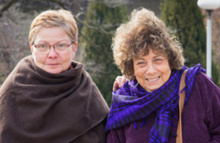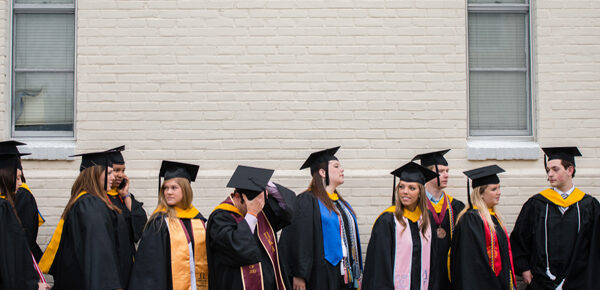 Engaging and improving the surrounding community is an important responsibility of higher education institutions, as Drexel University has long recognized.
Engaging and improving the surrounding community is an important responsibility of higher education institutions, as Drexel University has long recognized.
One way Drexel does that is through the Building Wealth and Health Network, a program run by the Center for Hunger-Free Communities that helps families on welfare develop financial empowerment and build savings, while addressing the traumas that accompany poverty. Founded by Drexel University professor and expert on hunger Mariana Chilton, the Network serves caregivers of young children, mostly women, who receive Temporary Assistance for Needy Families (TANF).
According to a January report co-authored by Chilton, the TANF program has experienced little success in engendering self-sufficiency. Those who receive government assistance tend to need it for the long haul.
The creators of the Building Wealth and Health Network believe that addressing issues such as exposure to violence, neglect and hunger, and toxic stress, which are barriers to good health and employability, is necessary to success. That is why the Network takes a two-pronged approach, simultaneously providing financial education and a support network to address trauma.
The program includes five components:
- Financial SELF Empowerment Curriculum—Three-hour classes that teach participants about topics such as credit reports and financial reputation, understanding bank services and financial systems, how to stay employed, and starting a business. The curriculum also includes peer support groups, which take a trauma-informed approach to help participants deal with challenges at home and at work.
- Matched Savings—Participants open a savings account with a federal credit union with a $15 deposit provided by the network. After that, the Network matches each participant’s deposits dollar-for-dollar up to $20 per month.
- Individualized Financial Coaching—Participants receive personalized help from coaches on issues ranging from interpreting financial mail to pursuing entrepreneurship ideas.
- Social Work Referral—Participants can request individual sessions with the Center’s social worker, who can address or provide referrals for issues such as intimate partner violence, mental health, and housing concerns.
- Network Advisory Council and Ongoing Evaluation—Participants who complete the program can serve a one-year term on the advisory council to give feedback and guidance. Members of the council receive an honorarium.
According to Chilton’s report, many of the participants who received both the financial education and trauma support experienced improvement in their self-efficacy, depressive symptoms, and financial situation. They were able to work towards goals such as paying off debts and even becoming entrepreneurs.
One group of women has set its sights on opening a bank specifically for people of limited means. Thanks to their financial literacy classes and ongoing support, they have the knowledge and now just need an investor.
Overall, the Building Wealth and Health Network is doing truly good work to break the cycle of poverty by addressing underlying issues to achieve long-term success.
—Carly O’Connell
At a Glance
ACE Member Institution: Drexel University
Initiative: Building Wealth and Health Network
Goal: Break the cycle of poverty by teaching financial empowerment to caregivers who are low-income and helping them build savings, and addressing traumas that accompany poverty.
Become a member: As a member of ACE, you join nearly 1,800 organizations that collectively promote, protect and advocate for students, faculty and administrators in higher education. ACE is the most visible and influential higher education association in the nation, and we are at the center of federal policy debates concerning legislation that affects campuses across the country. See more on the ACE website.
If you have any questions or comments about this blog post, please contact us.


